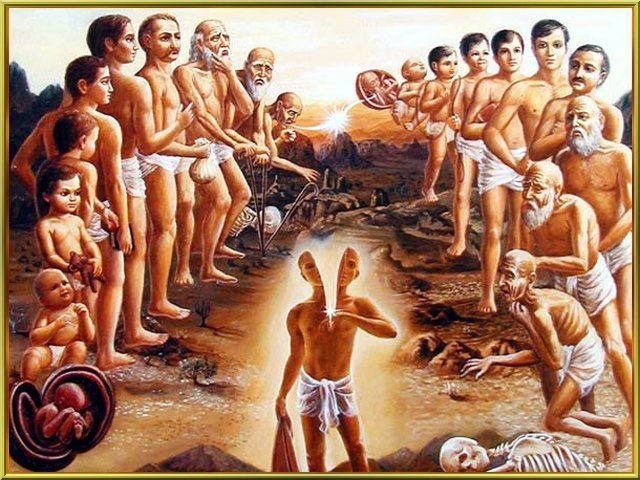Verse 34
akīrtiṁ cāpi bhūtāni kathayiṣyanti te ‘vyayām
sambhāvitasya cākīrtiḥ maraṇād atiricyate
Word-by-Word Meaning:
| Sanskrit | Meaning |
|---|---|
| akīrtim | dishonor / loss of fame |
| ca | also |
| api | indeed / even |
| bhūtāni | beings / living entities |
| kathayiṣyanti | will speak / narrate |
| te | your |
| avyayām | imperishable / indestructible |
| sambhāvitasya | of one who has conceived / caused |
| ca | and |
| akīrtih | dishonor / loss of fame |
| maraṇāt | than death |
| atiricyate | is greater / exceeds |
Even the imperishable beings will speak of your dishonor; and the dishonor of one who has caused it is greater than death.

Expanded Commentary:
Krishna continues to explain the serious consequences of abandoning one’s righteous duty. Here, the focus is on the loss of kīrti (honor or fame), which is an essential aspect of spiritual and social existence.
- “Akīrti” (Dishonor) is considered more painful and harmful than death itself.
- Not only humans but even immortal beings (bhūtāni avyayām) will talk about such dishonor.
- This dishonor stains the soul and affects future births and spiritual progress.
- The loss of reputation due to shirking duty is a spiritual downfall that is harder to overcome than physical death.
Symbolic Meaning:
| Term | Symbolizes |
|---|---|
| Akīrti | Loss of spiritual and moral honor; stain on the soul |
| Bhūtāni Avyayām | All beings including the eternal, the cosmic beings |
| Sambhāvitasya | One who causes or incurs through their own actions |
| Maraṇāt Atiricyate | Dishonor is considered worse than death |
Philosophical Insights:
- Reputation Matters in Spirituality:
- Spiritual integrity and honor carry immense weight in the cycle of life and rebirth.
- Dishonor Causes Social and Inner Ruin:
- Dishonor isolates one from community and cosmic harmony.
- Spiritual Consequences Surpass Physical Death:
- Physical death is temporary, but loss of honor may trap the soul in greater suffering.
- Responsibility to Maintain Dharma and Honor:
- Upholding dharma preserves not only personal honor but cosmic order.
Practical Application:
- Recognize that actions not only affect the physical world but also the reputation and spiritual status we carry.
- Avoid choices that may bring shame or dishonor, as these have long-lasting effects.
- Strive to maintain integrity and courage in all aspects of life.
- Understand that true courage involves facing consequences rather than escaping them.
Reflection Questions:
How do I perceive honor and reputation in my own life and spirituality?
Have I ever avoided difficult duties out of fear of losing respect?
What can I do to rebuild or maintain my integrity when challenged?
How does fear of dishonor affect my decisions and actions?
Conclusion:
In this verse, Krishna warns that the loss of honor caused by shirking duty is not just a social setback but a profound spiritual crisis—one worse than physical death. Such dishonor affects how beings across realms perceive us and influences our spiritual destiny.
Krishna’s teaching encourages embracing duty with courage and integrity, reminding us that maintaining kīrti is essential for both worldly harmony and eternal progress.
